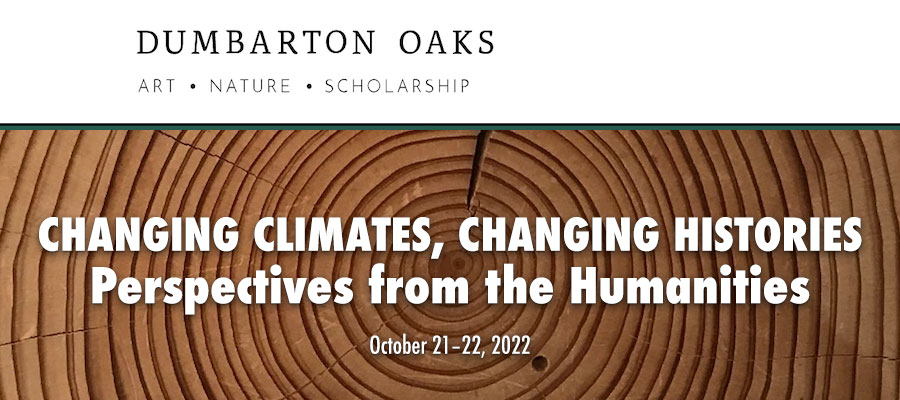Changing Climates, Changing Histories: Perspectives from the Humanities, Dumbarton Oaks and Zoom, October 21–22, 2022
In the expanding field of historical climatology, scientists and historians have been engaging in interdisciplinary research that brings together distinct sets of data to uncover past events of climate change and extreme weather events. These studies reveal valuable insights about the ability of humans and societies to respond and adapt to changing climatological conditions.
Research has confirmed human activity as the main cause of current global warming. While the concept of Homo Prometheus can polemically be traced back into the Paleolithic when humankind first learned to manage fire, the historical and cultural conditions that furthered the human exploitation of the environment, and thus anthropogenic climate change, remain a serious question. What effects in the past did population growth, increasing use of fossil fuels, agricultural burning activities, deforestation, management of water resources, etc., have on the environment and which lasting changes in the climate did this human activity provoke on local and global levels? What can we learn from identified cases of anthropogenic climate change in the past? How did past societies respond to, reflect on, and explain climate events and the role of human agency therein? And what do cases of anthropogenic climate change tell us about the human relationship to environment and land?
This symposium seeks to explore these questions from a humanities perspective, to understand the human activities that likely induced changes in environment and climate, and how people gave meaning to these activities and their effects—prior to and post impacts. We are interested in hearing about the role of food production, resource management, systems of power, human expansionism, religion, philosophy, arts, etc. had in the changing environment. Bringing together science data with historical as well as archaeological records, literature, and art, the symposium papers will reflect on how the interdisciplinary approach of history and climate science has informed questions, methods, and theoretical frameworks used to develop a more comprehensive understanding of our pasts.
Advance registration required.
